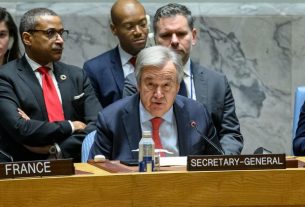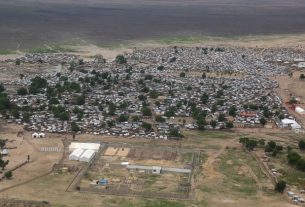In a deeply unsettling development for India’s media community, investigative journalist Mukesh Chandrakar was found murdered in Chhattisgarh’s Bijapur district on January 3, 2025. The 30-year-old journalist, known for his bold reporting on corruption and insurgency in central India, had been missing since January 1, when his family reported his disappearance to local authorities. His body was discovered in a newly constructed septic tank on the property of an influential contractor from the Chattanpara area, sparking widespread concern over the circumstances surrounding his death.
Chandrakar, who ran the popular YouTube channel Bastar Junction, was well-regarded for his fearless investigative work, which included in-depth reports on government corruption and the activities of insurgent groups operating in Bastar district. His channel had gained significant viewership, with millions of people following his updates on local issues.
A Troubling Pattern
Mukesh’s untimely death marks a troubling start to the year, as he becomes the first journalist to be killed in 2025 worldwide. His murder follows a pattern of violence against journalists in India, where the media often faces threats for exposing corruption and challenging powerful interests. In a statement, Blaise Lempen, President of the Press Emblem Campaign (PEC), condemned the killing, saying, “It is unfortunate that a young media person is targeted for his bold reporting on powerful corrupt individuals. We demand a thorough investigation to bring the perpetrators to justice. PEC urges Chief Minister Vishnu Deo Sai to take personal interest in ensuring justice for Mukesh Chandrakar’s family.”
The Journalist’s Legacy
Chandrakar had worked for several media outlets during his career, including a satellite news channel, but he gained significant recognition for his work exposing the misappropriation of government funds in the region. His investigative pieces often involved high-level corruption, which likely made him a target for both local powerful figures and insurgent groups. The journalist had previously faced threats from ultra-left insurgents operating in the Bastar region but continued to report fearlessly, positioning himself as a voice for the marginalized communities in central India.
Nava Thakuria, PEC’s South Asia representative, noted that Chandrakar’s work had contributed to the visibility of critical issues in the region. “He was not just reporting the news but uncovering stories that were ignored by mainstream outlets, often at great personal risk.”
Rising Violence Against Journalists
The tragic death of Chandrakar adds to a growing list of journalists who have faced violence for their work. In 2024, 179 media workers were killed worldwide, across 25 countries. India reported four journalist murders in the previous year, an increase compared to 2023, which saw three journalist casualties. In central India, where Mukesh worked, similar incidents of media workers being killed have been reported, including the murders of journalists in Uttar Pradesh, Bihar, and Madhya Pradesh.
The murder of Mukesh Chandrakar highlights the risks faced by journalists, particularly those investigating powerful and corrupt forces. The case underscores the ongoing challenges to press freedom in India, where journalists often work under precarious conditions, especially when covering sensitive topics such as government malfeasance and insurgency-related issues.
Call for Accountability
As the investigation into Chandrakar’s death continues, there is a growing call for accountability. Journalists’ groups, media outlets, and civil society organizations are demanding that the authorities act swiftly to apprehend those responsible and ensure justice. The family and colleagues of Mukesh Chandrakar are calling for a thorough and impartial probe, as well as protection for journalists who continue to report on contentious issues in a hostile environment.
In conclusion, Mukesh Chandrakar’s murder serves as a somber reminder of the risks faced by journalists in India, particularly those covering politically sensitive issues. As his family and the wider media community await justice, his death highlights the ongoing need for stronger protections for press freedom in the country.
Image by Gerd Altmann from Pixabay



